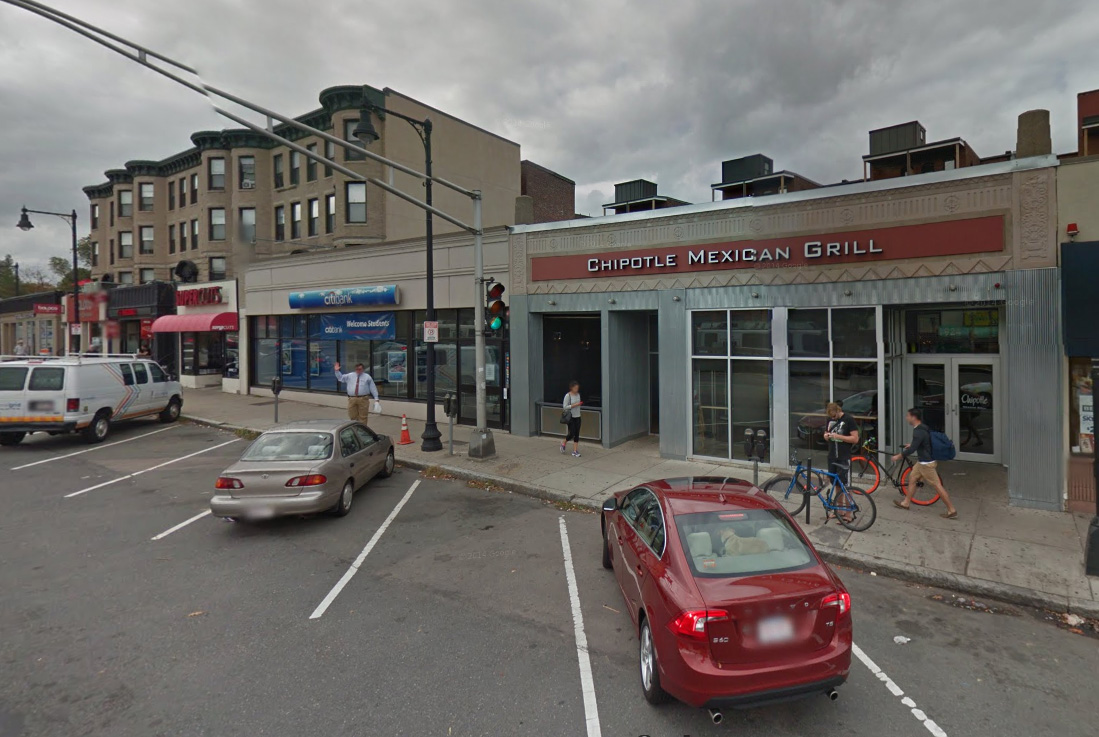Ask the Expert: How to Tell If You Have E. Coli

Chipotle image via Google Maps
UPDATE, December 9, 12:30 p.m.: Boston College has released a statement confirming the presence of norovirus among students; E. coli test results have not yet been returned.
As news spreads about possible E. coli contamination at the Cleveland Circle Chipotle, legions of burrito lovers may find themselves over-analyzing every sneeze and stomach ache. Don’t freak out yet, guacamole addicts. We asked Graham Snyder, associate hospital epidemiologist at Beth Israel Deaconess Medical Center, what you need to know.
How can you tell if it’s E. coli?
First, it’s important to note that an E. coli outbreak has not been confirmed; some reports have said that the approximately 80 Boston College students who fell sick after eating at the Cleveland Circle Chipotle may be suffering from norovirus, otherwise known as the stomach flu.
Indeed, Snyder, who is not involved in the Chipotle case, says E. coli and norovirus can look very similar. “It can be very hard to differentiate what the bug is just based on the symptoms,” he says. “When there’s a group of people with a G.I. illness, it’s important to state first that it could be a number of things.”
The chief distinction, Snyder says, is that E. coli typically causes only diarrhea—usually watery, though it can be bloody—without vomiting, while norovirus comes with frequent vomiting and possible diarrhea. Symptoms of E. coli usually appear three or four days after exposure, and may also include abdominal cramping or pain.
Snyder says testing is required to officially determine whether people are sick with E. coli, norovirus, or something else.
What is E. coli?
“E. coli is a bacteria that is a normal part of intestines,” Snyder explains. “There are different strains of E. coli that can make you sick, rather than just hanging out and doing the good work that bacteria in the intestines do.” It’s only when those certain strains of E. coli are present that the bacteria can result in illness.
How serious is it?
It varies. Some E. coli infections get better without treatment, but the disease can be fatal in rare cases. Most infections last between one and five days.
What should I do if I’m sick?
See your doctor, who can take a stool culture. “The important thing is to stay hydrated [and] see your doc,” Snyder says. “Usually it requires a stool specimen to find out what the problem is and how to go from there.”


